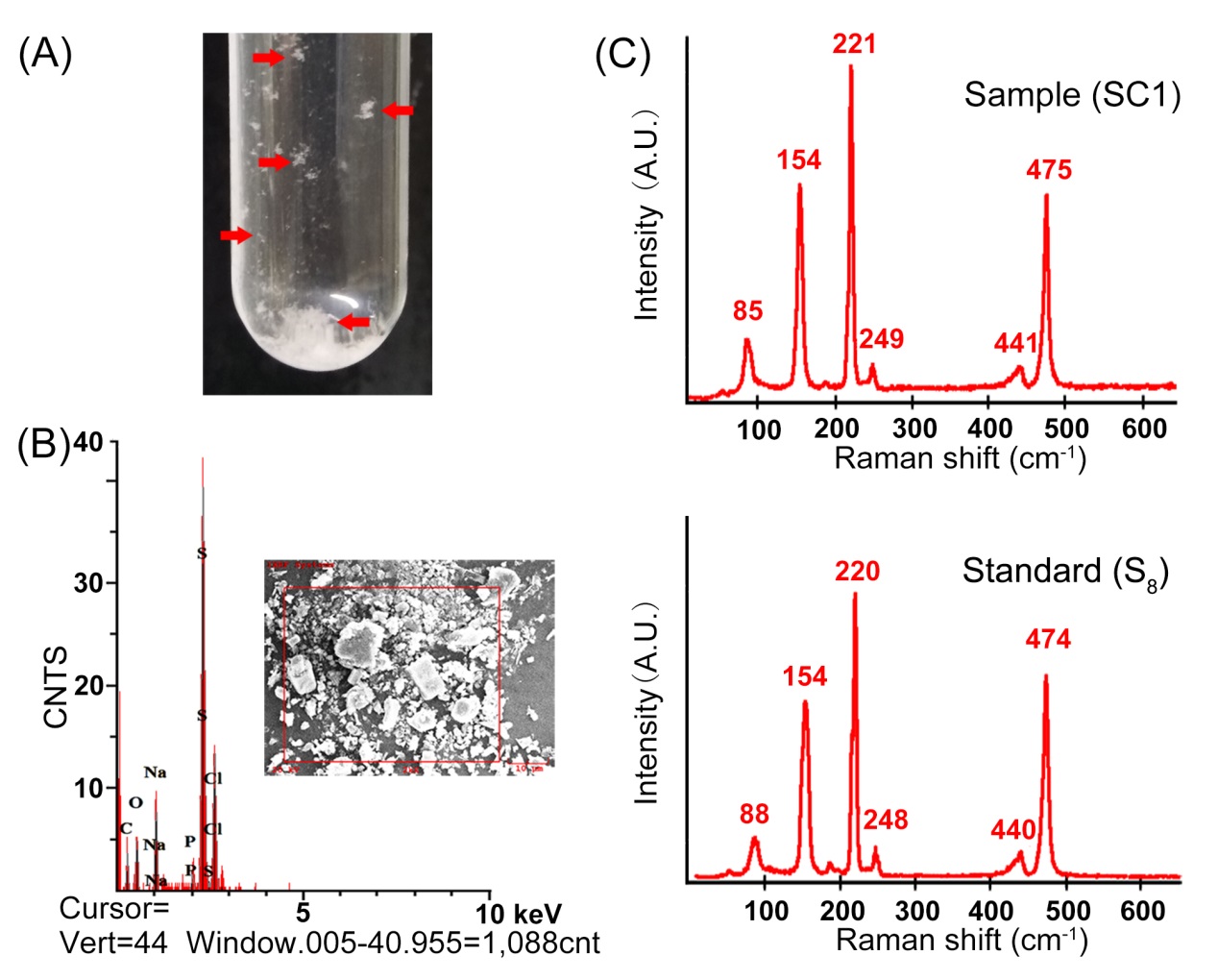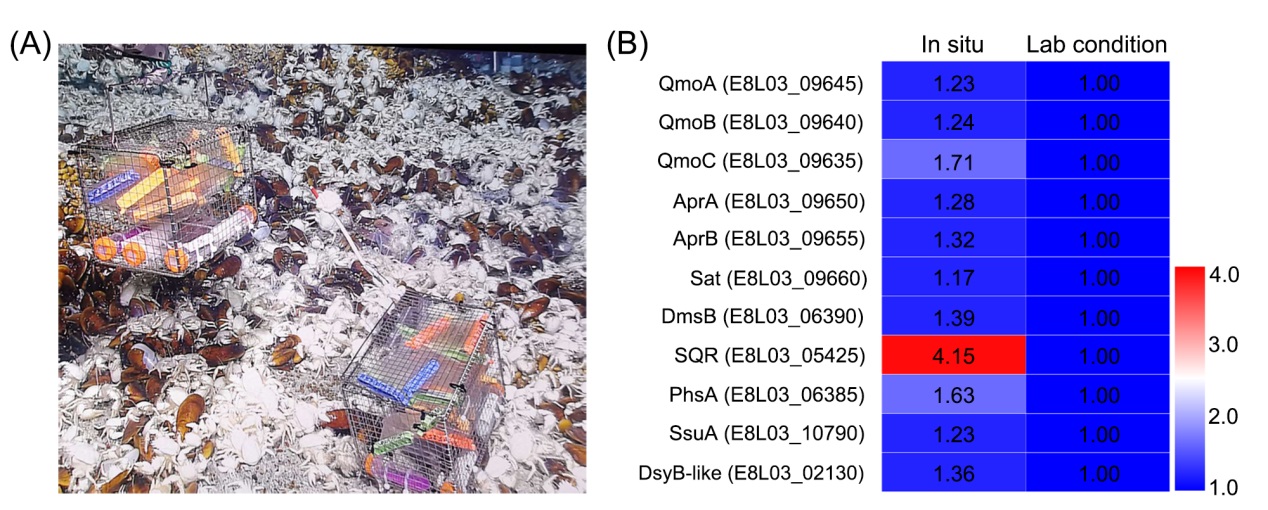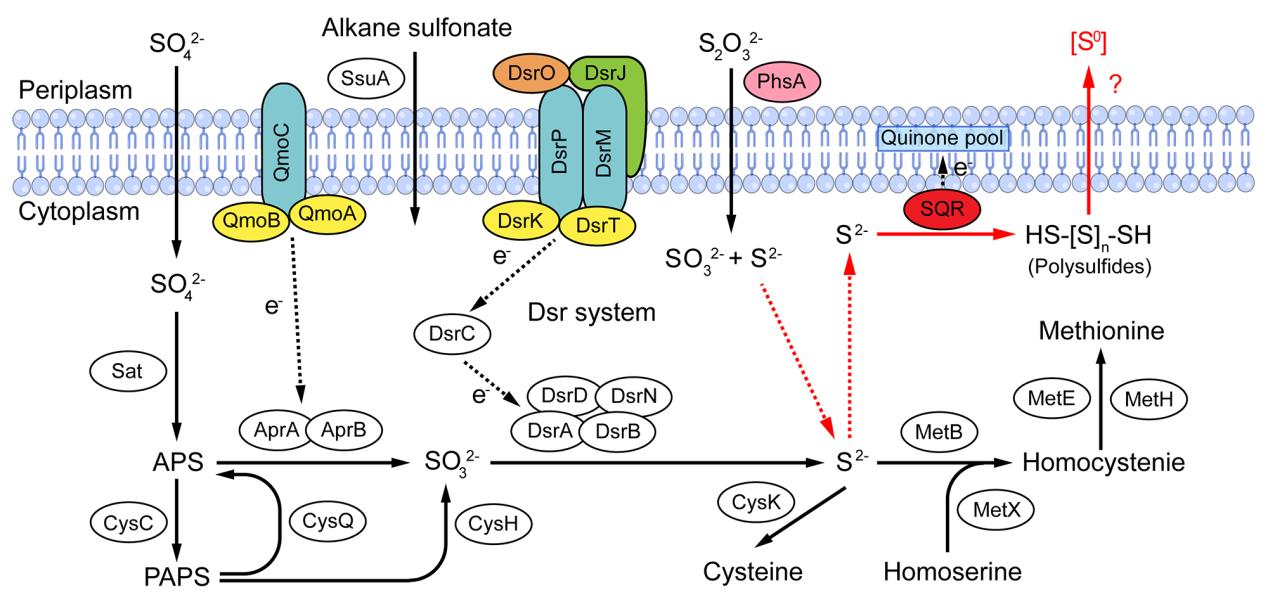Zero-valent sulfur (ZVS) is an important intermediate in the biogeochemical sulfur cycle, and it accumulates at sediment surfaces under the sea floor (including in cold seeps and hydrothermal vents). In previous studies, production of ZVS as the intermediate has been regarded as a biosignature of sulfide-oxidizing microorganisms. However, ZVS production mediated by sulfate-reducing bacteria (SRB) has rarely been reported.
Recently, the research team led by Prof. SUN Chaomin of the Institute of Oceanology of the Chinese Academy of Sciences (IOCAS) reported a novel zero-valent sulfur (ZVS) production pathway in a deep-sea sulfate-reducing bacterium (SRB) via thiosulfate metabolism.
The study was published in mLife on Sept. 23.
Researchers isolated and cultured a typical SRB designated Oceanidesulfovibrio marinus strain CS1 from deep-sea cold seep sediments in the South China Sea, and found that strain CS1 can form ZVS in medium supplemented with thiosulfate. Researchers further revealed that thiosulfate reductase (PhsA) and the sulfide: quinone oxidoreductase (SQR) play key roles in driving ZVS formation in O. marinus CS1 by proteomic and protein activity assays.
In this process, O. marinus CS1 firstly reduces thiosulfate to form sulfide by PhsA, then produces ZVS from sulfide oxidation by SQR. Researchers placed and cultured this bacterium back to the deep-sea cold seep during the cruise of R/V KEXUE in 2020. When O. marinus CS1 was cultured for 10 days in a deep-sea cold seep, the expressions of PhsA and SQR were significantly upregulated, strongly indicating that strain CS1 might form ZVS in the deep-sea environment.
It's worth noting that homologs of coding sequences (phsA and sqr) were widely identified from microbes living in sediments of deep-sea cold seep in the cold seep environment of South China Sea by the metagenomic analysis. "We thus propose that SRBs containing phsA and sqr genes potentially contribute to the formation of ZVS in deep-sea cold seep sediments of the South China Sea," said LIU Rui, first author of the study.
"Our findings provide new insight into a novel ZVS production pathway in deep-sea SRB, which are important for explaining the formation of ZVS in deep-sea cold seep sediment," said Prof. SUN.
This work was funded by the Marine S&T Fund of Shandong Province for Pilot National Laboratory for Marine Science and Technology (Qingdao), China Ocean Mineral Resources R&D Association Grant, Shandong Provincial Natural Science Foundation, Strategic Priority Research Program of the Chinese Academy of Sciences, Major Research Plan of the National Natural Science Foundation, and Key Deployment Projects of Center of Ocean Mega-Science of the Chinese Academy of Sciences.

Fig. 1 Oceanidesulfovibrio marinus CS1 produces ZVS when cultured in a medium supplemented with 40mM Na2S2O3.

Fig. 2 Proteomic analysis of sulfur metabolism of Oceanidesulfovibrio marinus CS1 cultured in a deep-sea cold seep.

Fig. 3 Proposed model of sulfur metabolism and ZVS formation in Oceanidesulfovibrio marinus CS1.
Rui Liu, Yeqi Shan, Shichuan Xi, Xin Zhang, Chaomin Sun*. A deep-sea sulfate-reducing bacterium generates zero-valent sulfur via metabolizing thiosulfate. (2022). mLife, 1(3), 257-271. Doi: 10.1002/mlf2.12038.
(Text by LIU Rui)
Media Contact:
ZHANG Yiyi
Institute of Oceanology
E-mail: zhangyiyi@qdio.ac.cn
(Editor: ZHANG Yiyi)

